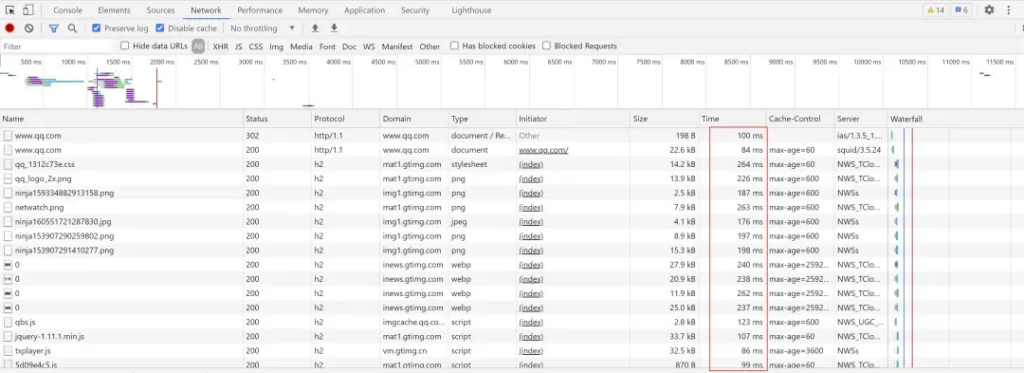Website loading speed is more than just a technical concern—it’s central to the success of your website. Fast-loading websites not only provide a better user experience but also play a key role in search engine rankings, directly impacting your visibility and engagement. Slow sites can increase bounce rates and hinder conversion rates, which is why optimizing website speed is crucial.
Why Speed Matters for Websites
The performance of a website is one of the primary factors that search engines consider when ranking sites. Google, for instance, uses loading speed as a ranking factor, meaning that slower websites are less likely to appear at the top of search results. This is because search engines want to prioritize delivering the best user experience, and slow websites can frustrate users. Additionally, studies have shown that users are more likely to abandon a website if it takes more than a few seconds to load, leading to lost opportunities and potential customers.
Factors That Affect Website Loading Speed
There are several key factors that contribute to slow page load times. These include:
- Server Performance
The server where your website is hosted can have a huge impact on loading times. Overloaded servers, outdated software, and inefficient server configurations can all lead to slower speeds. Choosing a reliable hosting provider with modern servers can make a significant difference.
- File Sizes
Large images, videos, and other media files can dramatically slow down your site. Optimizing these files by compressing images, reducing the resolution, and using modern formats like WebP can help to speed things up.
- Network Latency
Network issues, such as geographical distance between the server and the user, can lead to delays in loading time. Websites hosted far from their target audience face longer data transmission times, increasing the overall load time.
- Unoptimized Code
Websites with poorly written or bloated code (like excess JavaScript, CSS, or HTML) can experience slower rendering times. Minimizing and optimizing the code is essential to improve site speed.
- External Scripts
Heavy reliance on third-party scripts, such as social media widgets, ads, or analytics, can add significant load time to your pages. Limiting the use of these external elements can improve your site's performance.
Optimizing Website Speed: Key Solutions
To improve website loading speed, there are several strategies that you can implement:
- Content Delivery Networks (CDNs)
A CDN distributes content across multiple servers around the world, reducing latency by delivering content from the server closest to the user. By caching static content on edge servers, CDNs reduce the load on your main server and speed up delivery times. SurferCloud’s global network of data centers in locations such as Singapore, Hong Kong, and Frankfurt ensures fast content delivery regardless of where your users are located.
- Use Caching
Caching stores copies of frequently accessed files and data, reducing the need to generate the same information repeatedly. By enabling browser caching, you can significantly improve your site’s loading time for returning visitors.
- Optimize Server Performance
Ensure that your server is not overburdened and is configured for optimal performance. This can involve using the latest server technology, optimizing databases, and reducing the amount of dynamic content your server has to process.
- Image and File Optimization
Reduce file sizes without compromising quality by compressing images and using efficient file formats. Implement lazy loading so that images and videos load only when they are in the user’s viewport, rather than all at once.
- Minimize HTTP Requests
Every element on your page (images, scripts, stylesheets, etc.) requires an HTTP request to load. Minimizing the number of elements on your page can help speed up loading times. Combine files, reduce the number of plugins, and eliminate unnecessary elements.
SurferCloud: A Key Player in Speed Optimization
To achieve faster load times and optimal website performance, using the right infrastructure is key. SurferCloud provides a robust platform for businesses looking to improve their website’s speed. With 16+ global data centers, including locations like Singapore and Frankfurt, SurferCloud's global infrastructure minimizes latency and ensures that users experience faster load times.
In addition to its CDN capabilities, SurferCloud offers flexible VPS hosting solutions, including both Intel and AMD-based options, ensuring you can choose the best configuration for your website’s needs. SurferCloud’s VPS services provide high-performance computing power, which is essential for handling large traffic spikes and intensive applications.
Best Practices for Maximizing Website Speed
In addition to leveraging CDN services like SurferCloud’s, consider the following best practices for speeding up your website:
- Use a Reliable Hosting Service: Choose a hosting provider like SurferCloud that offers a global network and optimized infrastructure.
- Regularly Monitor Website Speed: Use tools like Google PageSpeed Insights to track your website’s performance and identify areas for improvement.
- Reduce Redirects: Each redirect creates additional HTTP requests, which can slow down your website.
- Keep Your Website Updated: Ensure that your CMS, plugins, and server software are always up to date to avoid security vulnerabilities and performance issues.
By implementing these strategies and utilizing services like SurferCloud’s global CDN, you can drastically reduce your website’s loading time and improve user satisfaction, leading to higher engagement and better SEO rankings.






